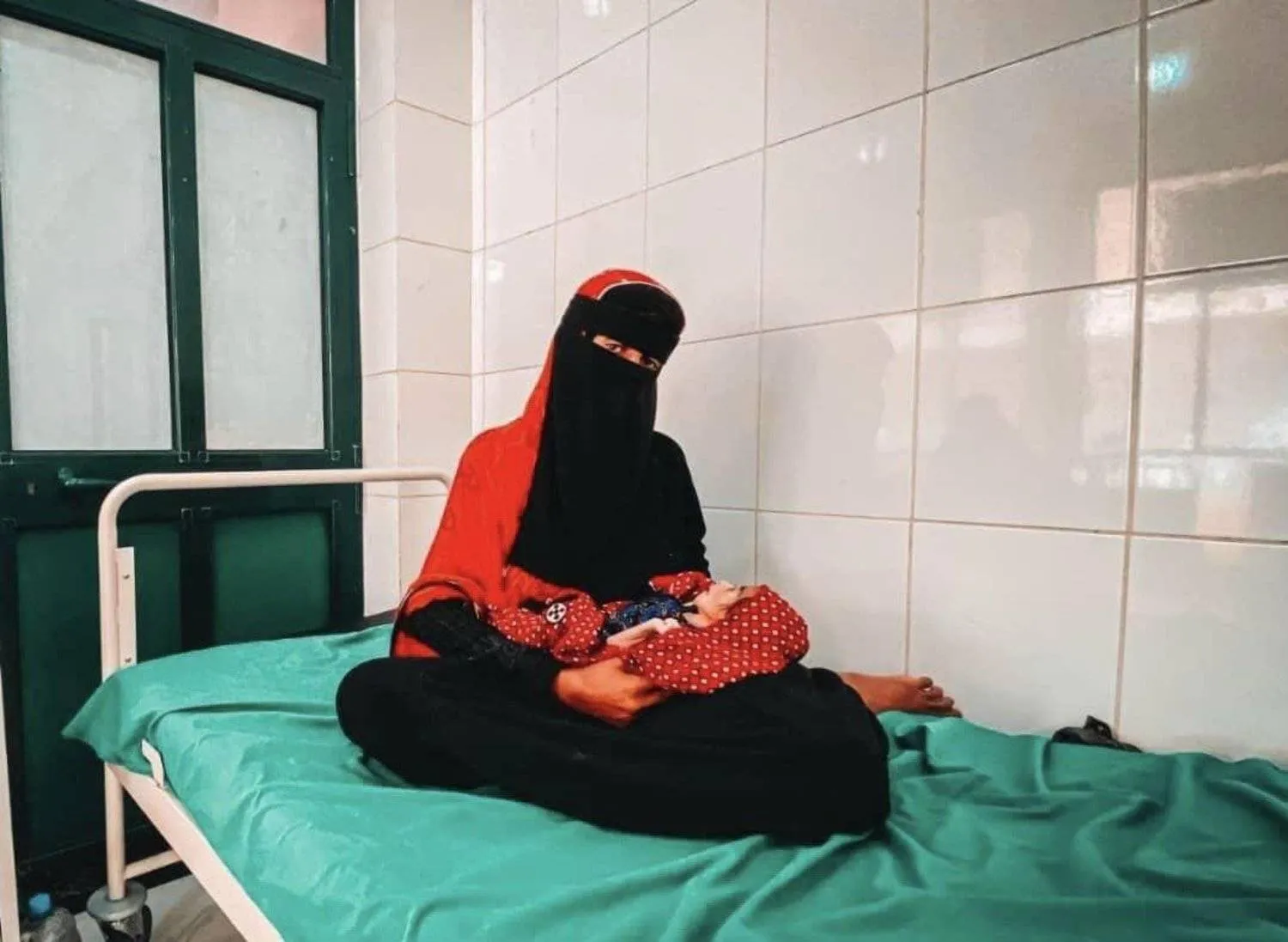The peak of a cholera and severe diarrhea wave was recorded in the two districts of Al Qahirah and Al Mudaffar, in the center of the Yemeni city of Taiz, according to a recently published humanitarian report.
HUMAN ACCESS said tens of thousands of people in the two districts suffer from malnutrition, especially among pregnant women and children. It revealed that about 55,000 children and 66,000 women are acutely malnourished.
“The health situation in Al Mudaffar and Al Qahirah districts of Taiz governorate is acutely in need,” the group said in its report of Community Need Assessment published on Monday.
“People in these overcrowded districts are markedly vulnerable due to the high global acute malnutrition (GAM) rate of 16.3%,” the report said.
It noted that 66,400 pregnant women and 55,500 children under 5 are in need, in addition to 37,397 internally displaced people and many groups of marginalized people.
HUMAN ACCESS also said in two weeks, the two districts registered the peak of acute watery diarrhea and Cholera cases with 25 reported in Al Mudaffar and 36 in Al Qahira. Moreover, it said the governorate's Mental Health Hospital, located in the district, serves about 800 people per month with no support in medicines or operational costs.
The humanitarian organization said the purpose of its needs assessment report is to explore the health needs of the IDPs and the host communities in Al Mudaffar and Al Qahirah districts.
“There is piped water and piped sewer system in both districts. The main sources of water are wells and tanker-truck. However, the public electricity is not available,” HUMAN ACCESS said in the report.
It showed that the most common diseases in both districts are acute malnutrition, measles, diarrheal diseases including acute water diarrhea, malaria and dengue fever, and upper respiratory tract infection.
“In Al Mudaffar district, there are one referral hospital (mental health hospital), one district hospital, one maternal and child health hospital and five health centers,” the report said.
However, in both districts, the assessment finds that the incentives for health workers and medicines, supplies, and operational costs are most commonly provided by non-governmental organizations when they are supporting the health facilities.
The report then said that the most important constraints noted in these districts include the scarcity of pharmaceutical supplies and the lack of sufficient operational budgets to provide the service to the fullest extent.
HUMAN ACCESS said its report is based on UN data showing that over 21.6 million Yemeni people are in need while they are approaching the tenth year of conflict with the already fragile health system. Also, more than 20 million people need health assistance, including 13 million with acute needs.
It said that from January 1 to 31 August, the Executive Unit for internal displaced persons (IDPs) monitored 5,690 households (31,424 individuals) who were displaced from 20 different governorates and they were distributed among 10 governorates.









